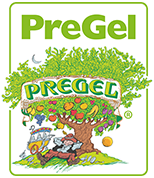From Mike Tyson to Ellen DeGeneres, more and more people are adopting a vegan lifestyle. The reasons are not always political or social, but are often the result of allergies or lactose intolerance. Also, consumers are taking note of studies that show a vegan/vegetarian diet can help lower cholesterol, risk of heart disease, blood pressure, body fat, risk of hypertension, Type 2 diabetes and overall cancer rates. Whatever the reason, offering vegan options to your customers can put you a step ahead of the competition.
Working with vegan substitutes can also have added benefits such as a longer shelf life of soy milk compared to regular milk, resulting in less wasted product. As described in the examples below, substituting nondairy ingredients can be a relatively simple and cost-efficient process.
 Soy milk: Soy milk is the most popular dairy alternative around the globe. Made from ground soybeans, water and sweetener, soy milk is high in protein and one of the thicker milk alternatives. Some people opt to drink soy milk because they have milk allergies, while others drink it for the health benefits.You can use soy milk as a milk replacement in most recipes, and it can be an animal- free replacement for eggs used as binding agents, as well. Other popular milk alternatives for vegans include almond or coconut milk.
Soy milk: Soy milk is the most popular dairy alternative around the globe. Made from ground soybeans, water and sweetener, soy milk is high in protein and one of the thicker milk alternatives. Some people opt to drink soy milk because they have milk allergies, while others drink it for the health benefits.You can use soy milk as a milk replacement in most recipes, and it can be an animal- free replacement for eggs used as binding agents, as well. Other popular milk alternatives for vegans include almond or coconut milk.
Soy yogurt: Soy yogurt starts with soy milk and has sweeteners added to it. Not only is it dairy-free for those looking to eat less animal protein, soy yogurt may offer great benefits. Soy yogurt has been shown as an effective enzyme blocker that impacts carbohydrate digestion, resulting in a slower, steadier rise in blood sugar after a meal, leaving your customers satisfied with this tasty treat.
Coconut cream: Coconut cream is very thick and rich. It is made from simmering four parts shredded coconut to one part water.The cream that rises to the top of a can of coconut milk is also considered coconut cream. Coconut cream is a non-dairy, less caloric alternative to dairy cream in any whipped cream recipe.
Tofu: Tofu is made from soybeans, water and a curdling agent and can be a great replacement for ricotta cheese, eggs and cream. It is high in protein and calcium and known for its ability to absorb other flavors through spices and marinades. Soft tofu will create a light cream when pureed, while extra-firm tofu will produce your thickest option. For a truly creamy texture, use silken tofu.
Fruit: Fruits such as applesauce, pureed banana, squash or pumpkin also work as a binding agent instead of an egg.They are low in fat but will also add some flavor, which may or may not be desirable depending on the recipe.
The flavors of the foods listed here may vary to their non-vegan counterparts, so thorough testing is recommended. Even though these substitutions are dairy-free, some may require refrigeration. Be sure to follow the proper food storage guidelines.
Most of these substitutions will boost the nutritional content of your product as well. Some are even fortified with vitamins and calcium.Whether you want to emphasize vegan options for dietary needs or simply keep up with the healthy trends in the food industry, these substitutions will help keep your business a leader in healthy and diverse options for your customers.
References:
Going Vegan with Ellen. (2012). Why Go Vegan? Retrieved June 20, 2012,
from http://vegan.ellen.warnerbros.com/why-go-vegan.php
Savvy Vegetarian. (2011).Vegan Baking Substitutes. Retrieved June 20,
2012, from http://www.savvyvegetarian.com/index.php
Coffee/Tea. (2012). Benefits of Soy Milk. Retrieved July 24, 2012, from http://coffeetea.about.com/od/Coffee-Tea-Health/a/Benefits-Of-Soy-Milk.htm
SHAPE. (2012).Yogurt 101. Retrieved July 24, 2012, from http://www.shape.com/blogs/weight-loss-coach/yogurt-101
The Kitchn. (2009). What’s the Difference? Coconut Milk vs. Coconut
Cream. Retrieved July 24, 2012, from http://www.thekitchn.com/whats-the-difference-coconut-m-75446
Vegetarian Food. (2012).Tofu. Retrieved July 24, 2012, from http://vegetarian.about.com/od/glossary/g/Tofu.htm
